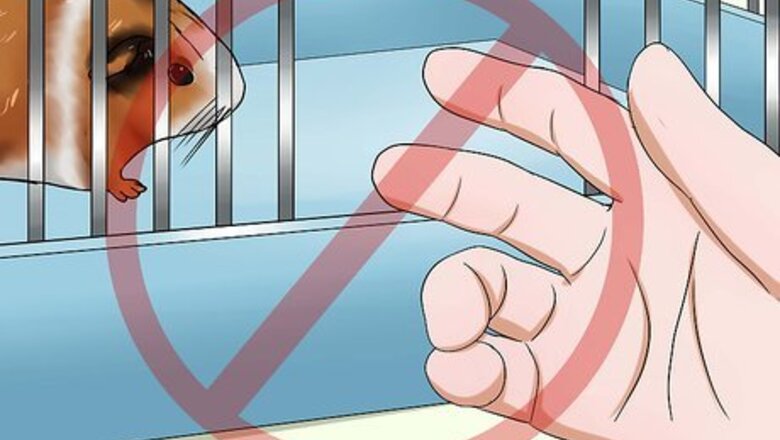
views
X
Research source
Teresa Bradley Bays, DVM, Teresa Lightfoot, D.V.M. and Joerg Mayer, Dr.med.vet.,M.Sc; Exotic Pet Behavior: Birds, Reptiles, and Small Mammals, St. Louis, MO: Saunders, 2006; pp 207-238.
Your job is to condition your guinea pig to expect love and kindness whenever it sees you. If you can do this, your guinea pig likely won’t bite you anymore.
Reducing Risk
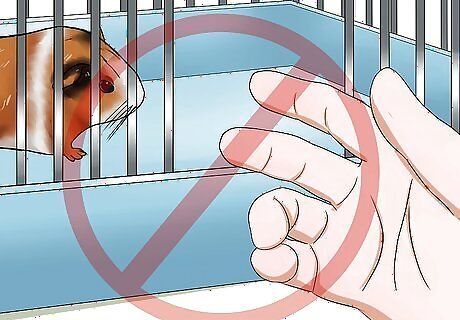
Keep yourself safe. Avoid sticking your fingers through the bars of the cage. If your guinea pig feels threatened, it will lash out and your fingers will be the perfect target. Don’t give it the chance to do any damage.
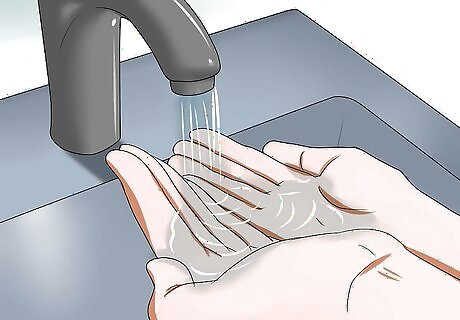
Wash your hands. You will inevitably come into contact with your guinea pig. Wash your hands to get rid of any odors that the guinea pig may not like such as, dog and cat scents. Guinea pigs have a keen sense of smell and an instinctual fear of scents they associate with danger. Since cats and dogs can pose a threat, they might react negatively to those smells. On the off chance that your guinea pig has an insatiable appetite, make sure that you wash your hands to remove any food odors. You don’t want your guinea pig to confuse your fingers for their meal. You might consider wearing gloves until you are confident that your guinea pig won’t bite you.
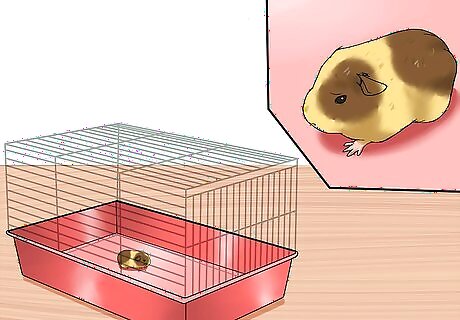
Understand a guinea pig’s reasons for biting. Biting results primarily from fear, but there are several other biological and environmental reasons for such behavior. Pain can cause biting. You might be hurting the guinea pig or there might be a deeper physiological issue. Sometimes, guinea pigs will bite you when they mean to nibble on themselves. This can be an indicator of mites or fleas. If discomfort or pain is a concern, contact your veterinarian for an exam right away. If your pig is nibbling/biting while you are holding it, it may need to get down to urinate. So, if that is the case, put it back in the cage and watch what it does next. If the pig urinates, you have your answer. Non-neutered male guinea pigs may show dominance by biting more than females or neutered male guinea pigs. Consider neutering your guinea pig. However there is no guarantee that neutering will stop the biting completely. Dominance is not solely based on testosterone levels. If your guinea pig is biting the bars of its cage, it could mean that the animal is lonely and wants attention. It might not be exhibiting menacing behavior, but calling out for attention. Approach carefully.
Winning Over Your Guinea Pig
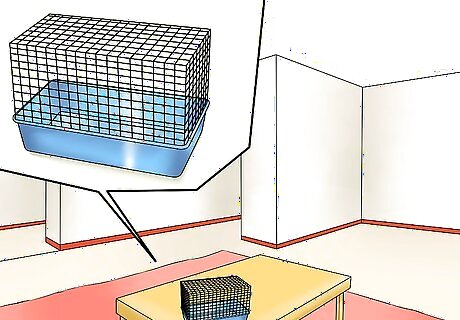
Reduce other factors that cause anxiety. The guinea pig’s cage should be kept in a quiet area of the house to minimize stress. If your guinea pig bites, it is most likely that it feels threatened. Turn the TV down or off. Put other pets, if you have any, in another room. You want the guinea pig to only focus on you. Then when you act nicely, your guinea pig will associate you with a pleasant experience, not stress.
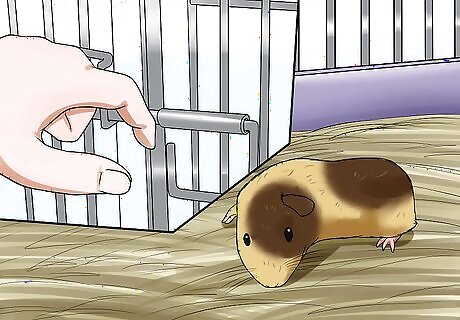
Let your guinea pig explore its space. If you’ve just brought home your guinea pig, it will take a while for it to get used to its new home, its cage, and the room the cage is in. Let the guinea pig acclimate. Don’t immediately start playing with the guinea pig. Open the cage and let it investigate the opening. It is important to let your guinea pig explore. Once it knows its space and where the good hiding places are, it will feel more comfortable. As the pig gets more relaxed, place an exercise pen around the cage on the floor, and give the guinea pig time to explore. Do this when it is quiet — make sure there are no loud noises and no other pets around. Place fresh greens at the edge of the cage door and outside the cage to encourage exploration. Don’t push. Every guinea pig is different and this will take time.
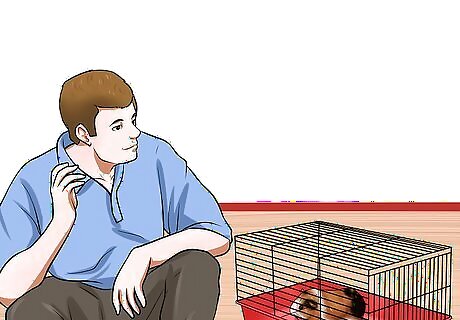
Slowly introduce yourself into its environment. Hang out without trying to engage your pig at first. Sit next to the cage. Talk quietly to the pig. Place tasty greens like parsley or dandelion greens in its space. Wait for the pig to get more comfortable before reaching out to pet it. Eventually, you can stick out a finger and let it explore your scent. Do not make contact until the guinea pig feels comfortable. Just sit and read or watch TV (quietly) next to the cage, while the pig gets used to your presence. Loud noises will frighten the guinea pig, so hang out together when the house is quiet and no dogs or cats are around.
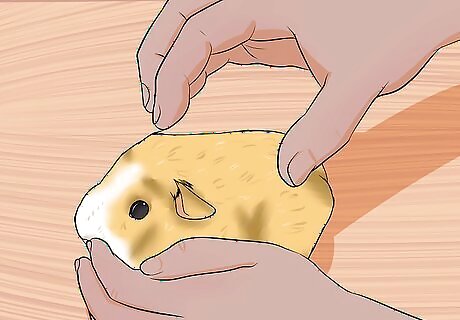
Gradually work towards holding your guinea pig. Make physical contact for short periods. Do not grab and hold your guinea pig against its will. Once the pig accepts your hand in the cage, gradually and gently pet the guinea pig for a few seconds at a time. Try petting it behind the ears and on the top of the head at first. Only after it is comfortable in its setting and with you petting it, should you pick it up. Lift it up from under the chest just off the ground and then place it back down immediately. Work on this to get it used to being picked up. When you pick up a pig, use one hand to pick it up around the chest and the other to support the hindquarters. The guinea pig needs to feel completely supported so it doesn't worry about being dropped. Start by sitting on the floor. Pick it up and pet the it. Keep calm. If the pig gets agitated, put the pig back down before it feels the need to defend itself with their teeth.
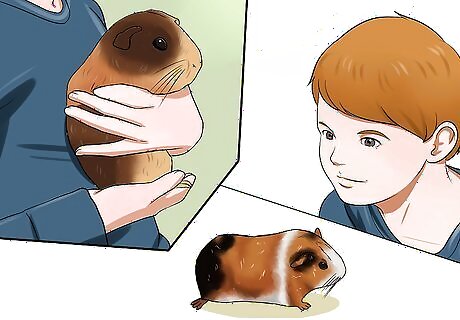
Teach children how to hold guinea pigs properly. Remember that nibbling/biting is the guinea pig's way of expressing itself. If the guinea pig feels uncomfortable being held by a child and resorts to biting, tell the child to put the pig down immediately. Under your supervision, have children sit down on the floor with a towel, a “Critter Cuddler Blanket”, or “Cuddle Cup” to hold the guinea pig. This way, there is a barrier between the child and the guinea pig to protect them both. Have the child pet the guinea pig gently and allow the guinea pig to wander away, so it does not feel trapped.
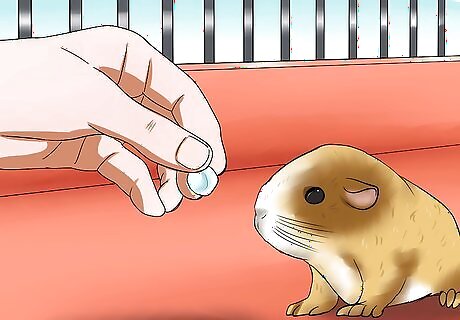
Give treats to reinforce good behavior. Don’t reward bad behavior. If it seems that the guinea pig is biting to get your attention, do not reward the behavior by giving attention. Come back later and pet the pig when it is calm. You will have to read the pig’s body language and if it seems calm and accepting, pet it and reward that behavior. If you attempt to abate its biting with treats, it will associate biting and bad behavior with tasty treats.
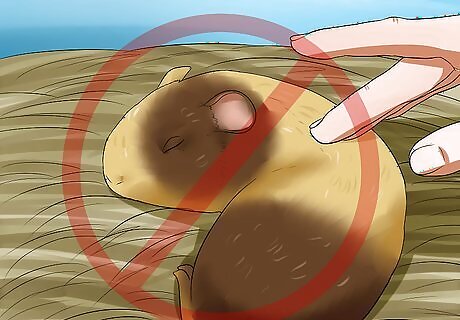
Learn your guinea pig's personality. After a few months of living together, you will start to notice the guinea pig’s patterns. Avoid bothering the pig when it is napping, for instance, to decrease the chance of an adverse reaction to your attention.
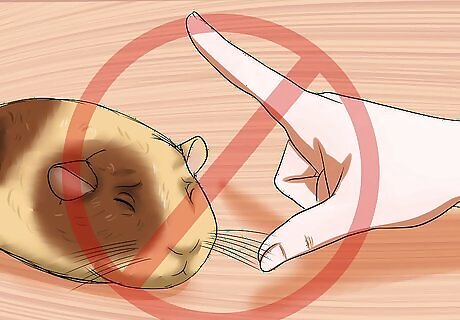
Do not hit your guinea pig! This can injure the pig, but it will also teach the pig that it needs to defend itself against you - leading to more biting. It might be your gut reaction to lash out at a guinea pig after it bites you. Don’t give in to this instinct. Think about why the guinea pig resorted to biting and change your behavior. If someone held you against your will and you were afraid, had to urinate, or were hungry, would you consider biting? You don’t have another way of communicating, so you probably would sink your teeth into their hand too.

















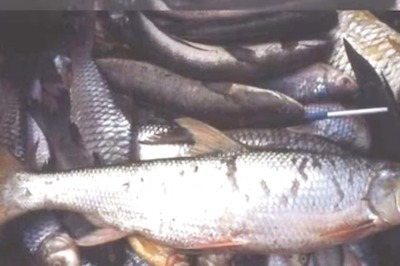


Comments
0 comment